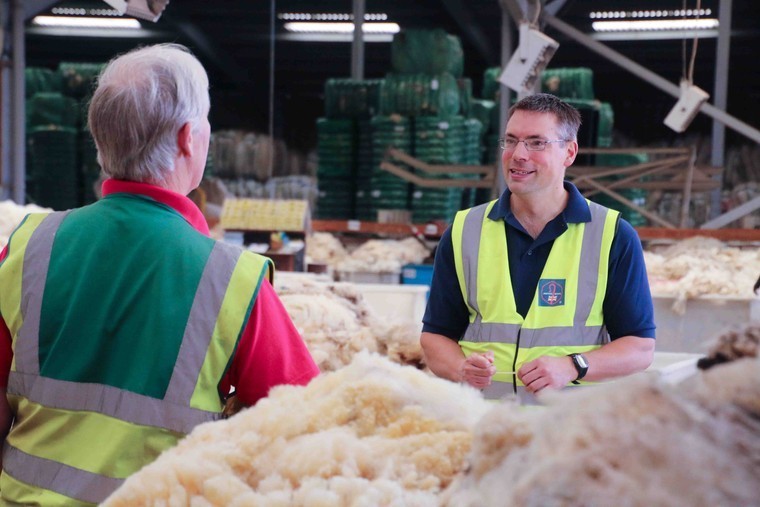The sale saw competitive bidding across the full range of types; prices increased as a result and there was a 99% clearance with 1.2 million kilos of wool sold. Once again there was particular interest in the Blackface wool as well as continuing interest in the Medium & Mule wool. Welsh Mountain was also sought after and specialist types such as Bluefaced Leicester once again achieved record prices.
Since the start of the year auction prices have increased by over 35% with the average price in last week’s sale reaching 73p per kilo.
Andrew Hogley, CEO, British Wool said: “We remain optimistic that the current strong demand will be sustained, that the recovery in the wool market will continue through the year and that this will result in further price improvement. As we head towards the winter months and with over 1 million kilos of wool being delivered into us this season from producers who did not deliver in the 2020 season, I’d encourage any producers who still have wool on the farm, to deliver this into us ensuring they benefit from the current recovery in the market.”
British Wool’s mission is to drive sustainable demand for British Wool in order to maximise the value of wool for its producers. It does this through the collective marketing of the clip on behalf of its members. Mr. Hogley continued, “The only way producers can achieve better returns and receive the true market value for their wool is by supporting British Wool. With a reduced cost base, recovering market and exciting new initiatives such as the recent Wool Britannia carpet yarn launch by the Headlam Group and a Harrison Spinks traceable mattress range we are driving new demand for British Wool and increasing its value. This puts British Wool in a much stronger position to deliver better returns for our producers.”
Mr. Hogley concluded: “Every kilo of wool handled makes an important contribution to supporting British Wool. Given our cooperative ethos our scale allows us to provide a high standard of service to all producers, drive demand for British wool with our customers and downstream manufacturers, and continue to represent the best interests of all wool producers.”




